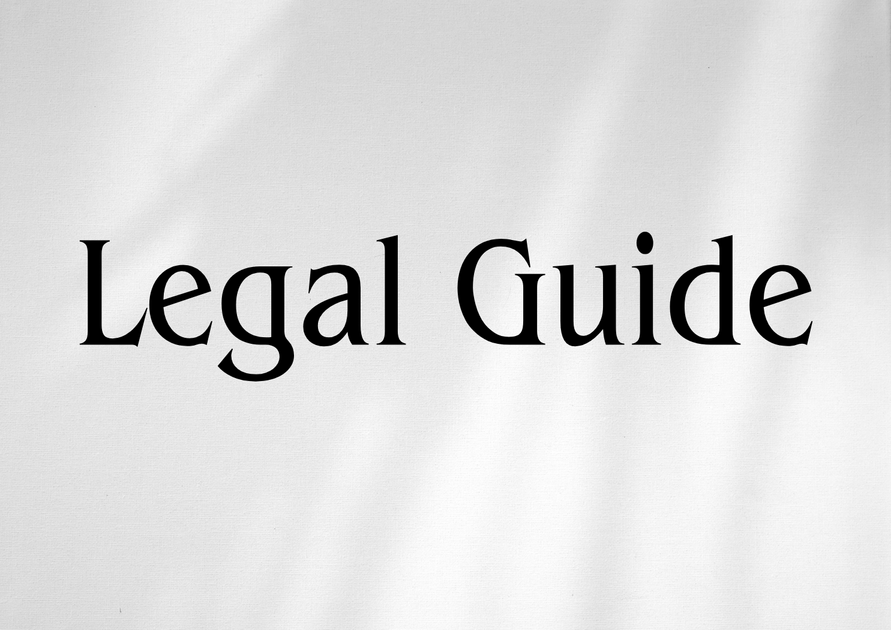Introduction: Navigating Aircraft Ownership Registration in the UAE
In the aviation sector, the registration of aircraft ownership is not merely a procedural formality; it is a legally and commercially critical step that underpins the enforceability of ownership rights, compliance with regulatory regimes, and eligibility for operations within and beyond the United Arab Emirates (UAE). Recent years have witnessed significant evolution in UAE law—most notably under the auspices of the General Civil Aviation Authority (GCAA)—to address the demand for streamlined, transparent, and internationally harmonized aircraft registration processes. Against a backdrop of regional economic diversification, increasing global trade, and the UAE’s drive to foster commercial aviation, foreign investment, and asset security, the ownership registration regime is now under even greater scrutiny by businesses, lessors, and financiers. With the UAE Federal Decree Law No. 20 of 2020 on Civil Aviation and associated GCAA implementing regulations, aviation stakeholders in the Emirates must be equipped with up-to-date, practical knowledge to avoid costly missteps and seize commercial opportunities. This expert analysis explores the core legal requirements, risks, and best practices connected to registering aircraft ownership in the UAE GCAA, particularly in light of the most recent 2025 regulatory updates.
Table of Contents
- Regulatory Framework: Key Laws and Authorities
- Eligibility Criteria for Aircraft Registration in the UAE
- Step-by-Step Guide to GCAA Aircraft Ownership Registration
- Recent Legal Updates in UAE Aircraft Registration
- Comparing Old and New GCAA Registration Rules
- Practical Consultancy Insights and Commercial Implications
- Case Studies and Hypothetical Scenarios
- Risks of Non-Compliance and Recommended Strategies
- Conclusion and Strategic Best Practices
Regulatory Framework: Key Laws and Authorities
Principal Governing Law
Aircraft registration and ownership in the UAE are principally governed by:
- Federal Decree Law No. 20 of 2020 on Civil Aviation (the “Civil Aviation Law”), which covers all matters pertaining to aircraft nationality, registration, ownership, leasing, and associated rights.
- GCAA Implementing Regulations, including the UAE Civil Aviation Regulations (CARs), particularly CAR Part V and the UAE Aircraft Register Procedures Manual.
- International Treaties, notably the UAE’s adoption of the Cape Town Convention (effective in the UAE since 2018), which aligns registration and rights with international best practice.
Regulatory Authorities
| Authority | Responsibility |
|---|---|
| GCAA Registration Section | Direct management of aircraft owner registration, records, and certification |
| Ministry of Justice | Dispute resolution and enforcement of registered rights |
| UAE Central Bank | Financing and mortgage registration (where relevant) |
It is critical to appreciate that an aircraft must be registered on the UAE Civil Aircraft Register maintained by the GCAA to possess valid UAE nationality, which determines operational, safety, and ownership rights.
Eligibility Criteria for Aircraft Registration in the UAE
Who Can Register
Pursuant to Article 18 of Federal Decree Law No. 20 of 2020, only the following entities may register an aircraft in the UAE:
- UAE Nationals (individuals or companies incorporated under UAE laws, including free zones if authorised);
- UAE Public and Private Sector Entities;
- Foreign nationals, but solely in specific, GCAA-granted circumstances (e.g., aircraft leased to a UAE operator or holding an economic interest aligned with UAE regulation);
- Government and Military owners, under separate special conditions.
Eligible Aircraft & Status
Aircraft must satisfy the following for registration:
- Not be registered in another jurisdiction (unless executing export/deregistration for transfer);
- Comply with UAE airworthiness and safety standards (per GCAA CAR Part V);
- Possess unique identifying marks and proof of ownership or rightful acquisition.
Prohibited Registrations
The law expressly prohibits the registration of:
- Aircraft scheduled for decommissioning, dismantling, or scrap;
- Aircraft used for purposes contrary to UAE public policy, security, or law;
- Aircraft lacking proper maintenance, title, or provenance documentation.
Step-by-Step Guide to GCAA Aircraft Ownership Registration
1. Pre-Application Legal Due Diligence
- Verify eligibility of applicant under UAE law and corporate structure;
- Confirm aircraft status, prior registrations, liens, and compliance with Cape Town Registry (if applicable).
Recommendation: Engage a UAE-licensed legal consultancy to perform due diligence, detect encumbrances, and clear title issues before proceeding.
2. Submission of Initial Application for Registration
- Register with GCAA via the dedicated online portal or, in exceptional circumstances, through physical submission at GCAA headquarters;
- Documents required include: application form, corporate/ownership documents, proof of acquisition (bill of sale, lease, gift, etc.), airworthiness certificate, deregistration certificate (if previously registered abroad), and technical specifications.
3. Review, Inspection, and Technical Assessment
- GCAA conducts document verification and arranges physical inspection and airworthiness test;
- Technical standards compliance (per GCAA CAR) is assessed by certified experts.
4. Assignment of UAE Nationality and Registration Marks
- Once approved, the aircraft is assigned a unique UAE nationality registration (“A6-XXX”) and entered into the Civil Aircraft Register;
- All associated security interests or mortgages (e.g., financial leasing) must be declared and registered at this stage.
5. Issuance of Certificate of Registration (CoR)
- The GCAA issues an official Certificate of Registration (CoR), which is valid evidence of owner/operator rights for legal, operational, and financial purposes.
6. Ongoing Compliance and Renewal Obligations
- Aircraft registration must be renewed as required (typically annually);
- Owners/operators must notify the GCAA of any substantial change of ownership, structure, purpose, or technical status;
- De-registration is mandatory upon sale, lease expiration, or decommissioning.
Recent Legal Updates in UAE Aircraft Registration
GCAA Regulations (2022–2025)
Several key regulatory changes govern current practices, reflecting the UAE’s commitment to international best standards and market competitiveness:
- Federal Decree Law No. 20 of 2020 introduced clearer ownership eligibility rules, digital registration tools, and enhanced transfer-of-title provisions;
- GCAA Circular 4/2022 updated application documentation and digital submission protocols;
- April 2024 amendments to CAR Part V further streamlined processes for commercial lessors and expanded Cape Town Convention rights.
Illustrative Table: Major Regulatory Changes (2010–2025)
| Aspect | Pre-2020 Regime | 2020+ Regime (Current) |
|---|---|---|
| Eligibility | UAE nationals/companies only | Now includes certain foreign owners and lessors |
| Process | Paper-based, manual | Electronic/digital portal, accelerated review |
| International Treaty Integration | None or limited | Full Cape Town Convention implementation |
| Security Interests | Complex, limited recognition | Expedited recognition and registration with GCAA and Cape Town Registry |
| Renewal Periodicity | Annual but less rigorously enforced | Mandatory electronic renewal, sanctions for non-compliance |
Comparing Old and New GCAA Registration Rules
Between the previous and current (2020–2025) regulations, the most commercially significant difference lies in how security interests and foreign ownership (especially via leasing or financier arrangements) are treated by UAE law. For example, the current regime:
- Recognizes and enforces rights of international lessors, financiers, and mortgagees (via the Cape Town Registry and UAE official Register);
- Provides clear dispute resolution mechanisms and asset repossession processes in the event of default or insolvency, as mandated by both domestic law and international conventions;
- Reduces procedural timelines, enabling faster registration and deregistration to support aircraft trading and finance.
Practical Tip: Effective 2025, all major transactions (sale, lease, mortgage) must comply with both domestic GCAA requirements and, if applicable, the Cape Town Convention to minimize legal and financial exposure.
Practical Consultancy Insights and Commercial Implications
Structuring Aircraft Transactions in Compliance with UAE Law
Given the complexity and international character of aviation transactions, careful transaction structuring is critical. For instance:
- Aircraft Leases: Ensure that lease contracts explicitly designate the intent to register in the UAE, identify the registering entity, and provide for change-of-ownership procedures in compliance with GCAA rules.
- Financing: All security agreements should be cross-registered with both the UAE GCAA and, for eligible parties, the Cape Town Registry to enhance enforceability in default scenarios.
- Multiple Ownerships/Joint Ventures: The GCAA recognises joint ownership, but requires clear documentation of undivided shares, voting rights, and dispute resolution clauses—recommend inserting UAE arbitration as default forum.
Commercial Leasing and Deregistration Issues
Under the updated regime, practical issues may arise in:
- Triggering deregistration certificates in the context of repossession or end-of-lease;
- Coordinating with international authorities to facilitate cross-border transfers (especially in syndicated financing);
- Enforcing Cape Town Convention remedies while preserving compliance with UAE administrative procedures.
Case Studies and Hypothetical Scenarios
1. Case Study: International Lessor – UAE Airline
| Issue | Resolution (2020 Law) |
|---|---|
| Repossession on default | UAE GCAA and Cape Town Convention process applies, enabling expedited deregistration and asset return to lessor |
| Recognition of foreign security | Mandated via both UAE GCAA register and Cape Town International Registry |
2. Hypothetical: Joint Venture Airline Registration
A UAE free zone company and a European financier jointly acquire an aircraft for a new UAE-based charter venture. How should they register ownership?
- Both parties must be recognized as owners in the GCAA application, subject to legal documentation proving their joint interest;
- The UAE entity should act as the principal for nationality purposes, ensuring operational approval and compliance;
- Both interests may be recorded on the Cape Town Registry to ensure enforceability abroad.
Risks of Non-Compliance and Recommended Strategies
Penalties and Legal Exposure
Non-compliance with GCAA registration obligations or misrepresentation in ownership filings bring significant risks:
- Fines and Administrative Sanctions: As per GCAA Administrative Penalties Table (April 2025), unauthorized use or misregistration attracts penalties up to AED 500,000 per incident.
- Aircraft Detention or Deregistration: The GCAA is empowered to ground, deregister, or bar such aircraft from UAE airspace.
- Potential Criminal Liability: Where fraud or public safety is implicated, criminal sanctions may follow under Federal Law No. 3 of 1987 (UAE Penal Code).
Visual Suggestion: Aircraft Ownership Compliance Checklist
- Eligibility documentation complete
- Technical/airworthiness certification secured
- Cape Town Registry filing (if applicable)
- GCAA registration and marking
- Mortgage/security interests registered
- Ongoing reporting and renewal calendar maintained
Expert Strategies for Effective Compliance
- Engage specialized legal and technical advisors early in the transaction;
- Cross-reference contractual arrangements with registration procedures to avoid inconsistencies;
- Utilize the GCAA’s online tracking and renewal platform to avoid missed deadlines;
- For multinational owners, align domestic and international registry filings to maximize protection;
- Regularly audit registered interests and maintain clear, updated corporate governance records.
Conclusion and Strategic Best Practices
Aircraft ownership registration in the UAE is now governed by a sophisticated and internationally harmonized legal regime, reflecting the country’s commitment to robust aviation infrastructure, investment protection, and operational transparency. For business leaders and legal practitioners, the effective navigation of this process rests on early due diligence, careful structuring of ownership and finance arrangements, and continual alignment with both the GCAA and Cape Town Convention protocols. As the regulatory environment continues to evolve—most recently with the digitalization and expanded scope introduced in the 2020–2025 legal reforms—proactive compliance will not only minimize legal risk but also optimize asset utilization and strategic flexibility in an increasingly competitive global market. Our recommendation is to work closely with a qualified UAE aviation legal consultant for any aircraft acquisition or transfer transaction, ensuring that every stage—from eligibility assessment to post-registration reporting—is meticulously addressed in accordance with current GCAA requirements and broader UAE law. In a landscape shaped by innovation and international best practice, organizations that treat legal compliance as a business advantage will be strongly positioned for growth and resilience in the UAE’s vibrant aviation sector.




